Search Results
Showing results 641 to 660 of 1003

Rubber Band Racers
Source Institutions
In this activity, learners explore the design of rubber band powered cars. Learners work in teams of "engineers" to design and build their own rubber band cars out of everyday items.

Conversation Piece
Source Institutions
Focus sound through a balloon! In this Exploratorium activity, you'll use dry ice to create a balloon that's a sound lens.
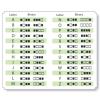
Binary Code Bracelets
Source Institutions
In this activity, learners make their own binary code bracelets by translating their initials into 0s and 1s represented by beads of 2 different colors.
Making An Impact!
Source Institutions
In this activity (on page 14 of PDF), learners use a pan full of flour and some rocks to create a moonscape.

The Best Dam Simulation Ever
Source Institutions
This online simulation game explores the different consequences of water levels on the Columbia River in the Pacific Northwest.
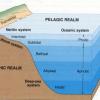
Introduction to Ocean Zones
Source Institutions
In this activity, learners will create a diagram of the ocean zones and determine what organisms live in each zone.

Got Gas?
Source Institutions
Create gas with a glass of water, some wire, conductors and a battery! You will be separating water (H2O) into oxygen and hydrogen.

Water Fountain
Source Institutions
In this activity, learners explore how a hydraulic pump works. Learners work in teams to design and build a unique water fountain that employs a hydraulic pump.

Tennis Anyone?
Source Institutions
In this activity, learners explore sports engineering and advanced materials development.

Globe at Night
Source Institutions
In this international citizen science activity, learners measure their night sky brightness and submit their observations into an online database.

EEEEK--A Mouse!
Source Institutions
In this activity, learners explore the concept of how engineering solved the problem of human/computer interface.
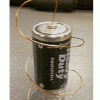
Simple Spinner
Source Institutions
In this activity, learners create a tiny electric, motorized dancer. Learners use the interactions of magnetism and electric current to make a wire spin, while displaying the Lorentz Force in action.
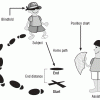
Find Your Way Around Without Visual or Sound Cues
Source Institutions
In this activity, learners play a series of simple games to investigate navigation without visual and sound cues.
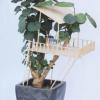
Mini Tree House Build
Source Institutions
In this activity, learners are challenged to design and build a miniature tree house in a potted plant. This activity uses engineering concepts to encourage creativity.
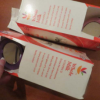
Telescoping Periscope
Source Institutions
In this activity, learners explore the many uses of periscopes and how this simple device was designed and is used in many applications.
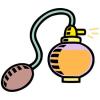
Make Your Own Perfume
Source Institutions
In this activity about olfaction (7th activity on the page), learners use natural ingredients to concoct their own perfume.
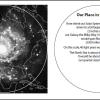
Our Place in Our Galaxy
Source Institutions
In this fun and simple hands-on astronomy activity, learners construct a model of our place in the Milky Way Galaxy and the distribution of stars, with a quarter and some birdseed.
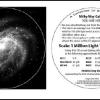
A Universe of Galaxies: How is the Universe Structured?
Source Institutions
This fun hands-on astronomy activity lets learners explore models of the Milky Way and other galaxies to get a sense of relative distances to other galaxies.

Who Dirtied The Water?
Source Institutions
In this activity, learners receive a labeled plastic film canister containing a material representing a pollutant (i.e. pencil shavings = a beaver's wood chips).

Go with the Flow
Source Institutions
In this quick and easy activity and/or demonstration, learners use two empty soda cans to illustrate Bernoulli's principle.
